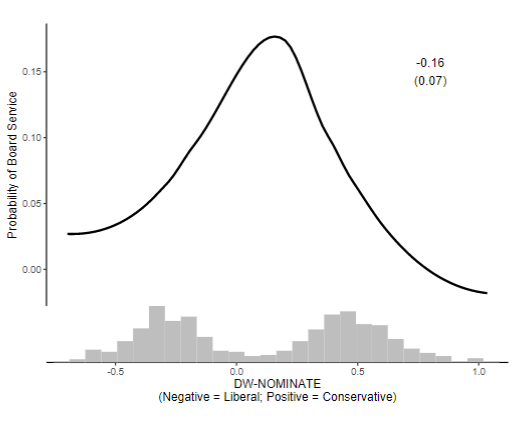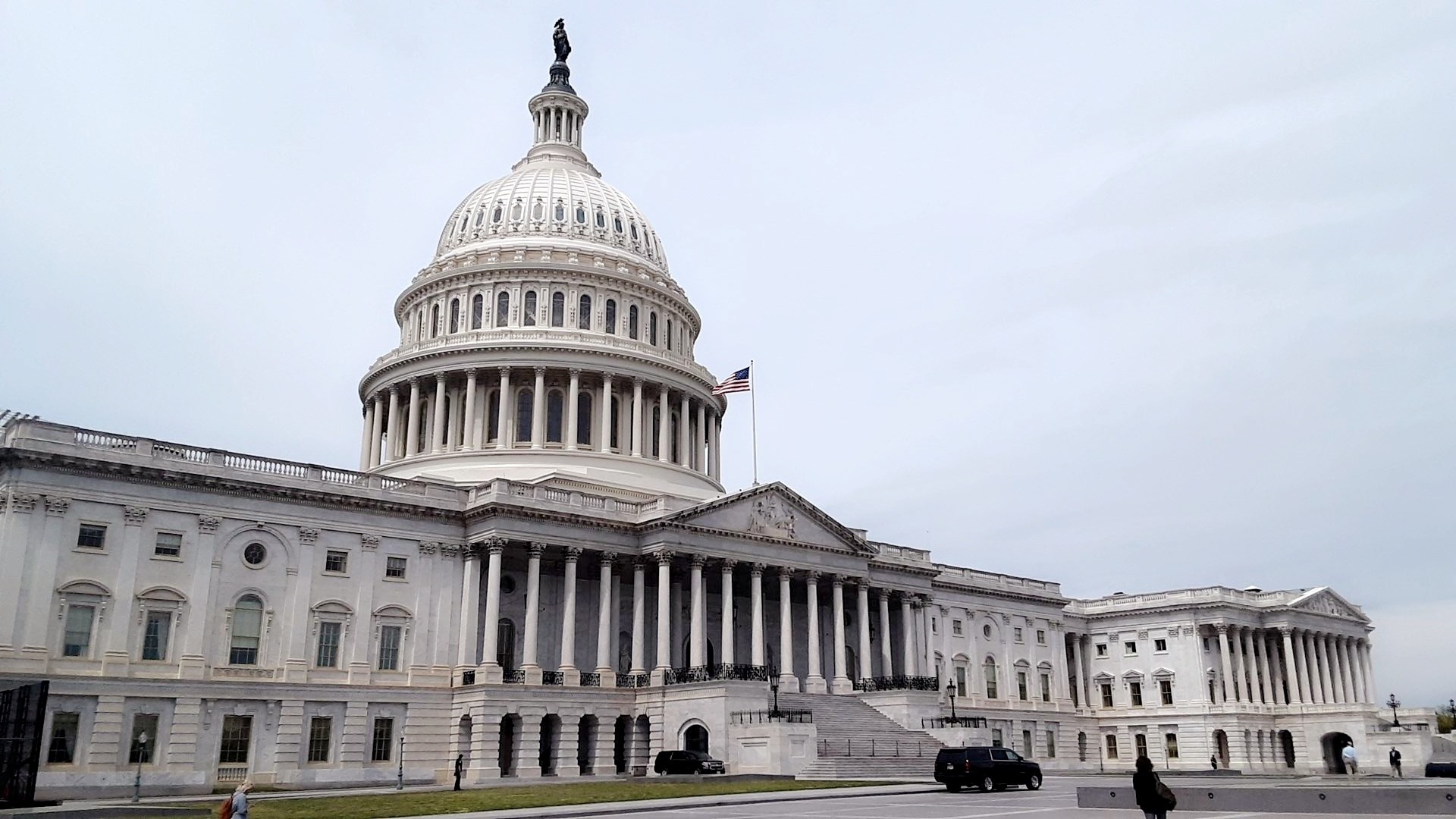Image: Jessica Rodriguez Rivas // wikimedia.org
What are the consequences of highly partisan behavior in Congress? While scholars have explored the electoral consequences of extremism, relatively less attention has been paid to the costs for legislators in safe seats or those who have decided not to run for election. In our forthcoming paper in the Journal of Politics, we use the labor market for corporate directorships to examine the post-elective career outcomes for Members of Congress (MoC) who have left office. Since board service is one of the most lucrative types of post-political employment (in 2020, the average director earned $230,000 and worked five hours per week) this sheds light on the personal costs of highly partisan behavior in office.
We find two main sets of results. First, former MoCs with more partisan voting records are less likely to secure board seats after they leave Congress. Both liberals and conservatives with the strongest ideological partisanship are effectively shut out of lucrative board service opportunities. The figure below shows the striking bivariate relationship between the probability of board service and our preferred measure of the strength of ideological partisanship (the first dimension of DW-NOMINATE). Moderates are several times more likely to gain a board seat compared to extremists of both parties.

Second, we utilize the Honest Leadership and Open Government Act (HLOGA) as an exogenous increase in the number of senators willing to accept corporate board seats. The HLOGA increased the cooling-off period before a senator was allowed to register as a lobbyist from one to two years; it kept the cooling-off period at one year for House members. Previous research by Max Palmer and Ben Schneer (2019) shows that after the passage of the HLOGA, more senators took positions as directors. This provides a larger pool of senators to choose from for any single board position, allowing firms to avoid extremists if they do not want to be associated with their brand of partisanship. Difference-in-differences results confirm our findings, showing that extremist senators are much less likely to join corporate boards after the passage of the HLOGA.
In additional analyses, we find suggestive evidence that the main motivation of firms when hiring moderates is to buy into their positive reputation while avoiding the partisan branding associated with appointing strong ideologues. We find no evidence that extremist senators are able to compensate for the loss of board service with better job prospects in think tanks and news channels.
In summary, we provide evidence that publicly traded companies avoid appointing ideological extremists to their boards, effectively placing a cost on highly partisan behavior in Congress and potentially playing a moderating role in the American political system.
References
Palmer, Maxwell, and Benjamin Schneer. “Postpolitical careers: How politicians capitalize on public office.” The Journal of Politics 81.2 (2019): 670-675.
This blog piece is based on the forthcoming Journal of Politics article “Extremists Not on Board: Labor Market Costs to Radical Behavior in Elected Office” by Benjamin C. K. Egerod and Hai Tran.
The empirical analysis has been successfully replicated by the JOP and the replication files are available in the JOP Dataverse.
Hai Tran is Associate Professor in the Department of Finance at Loyola Marymount University. His primary research interests are corporate governance, boards of directors, and mutual funds. For more information visit his website.
Benjamin Egerod is an Assistant Professor in the Department of International Economics, Government and Business at the Copenhagen Business School. His primary research areas are the role of business in politics, lobbying, and the revolving door between business and government jobs. For more information visit his website.


